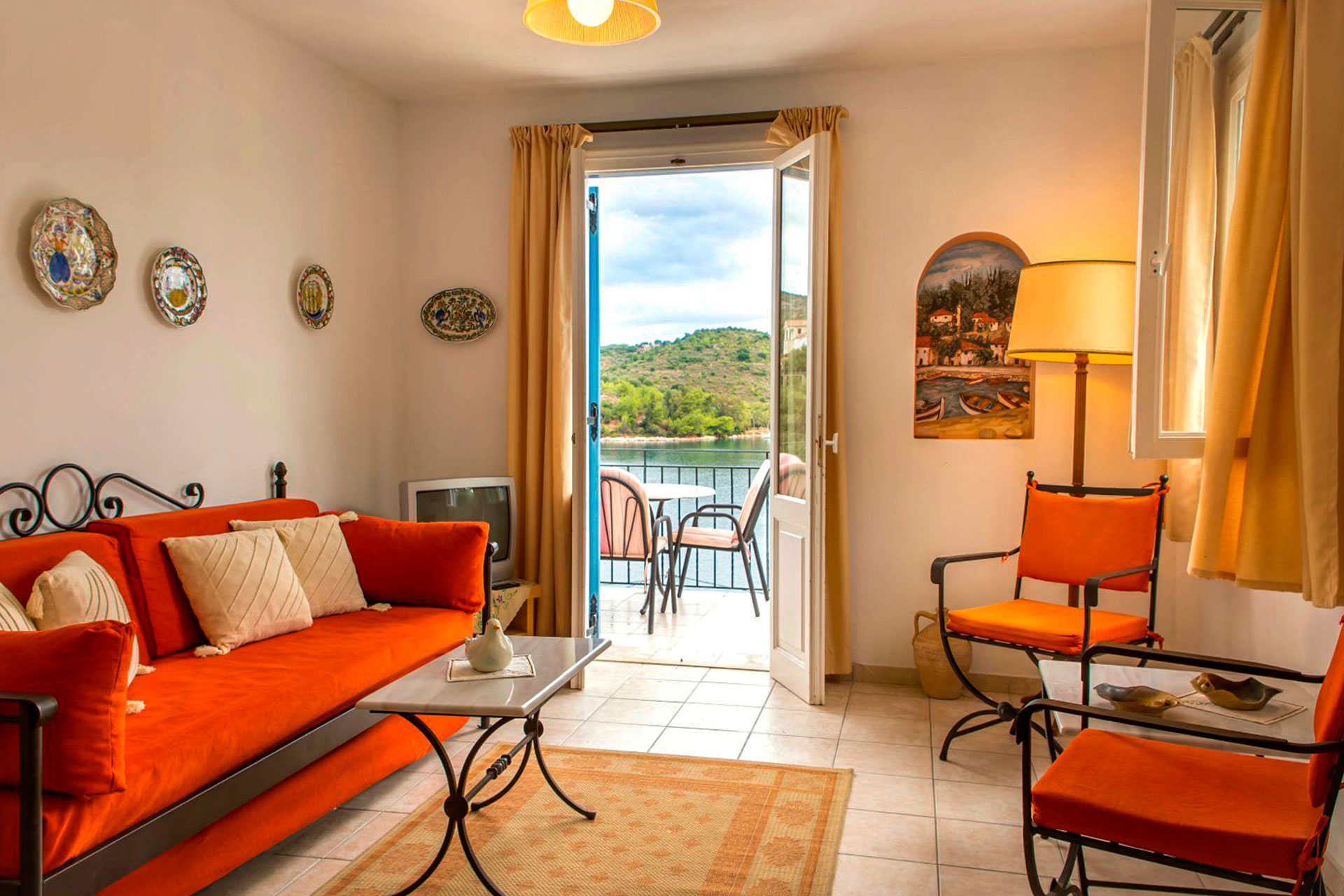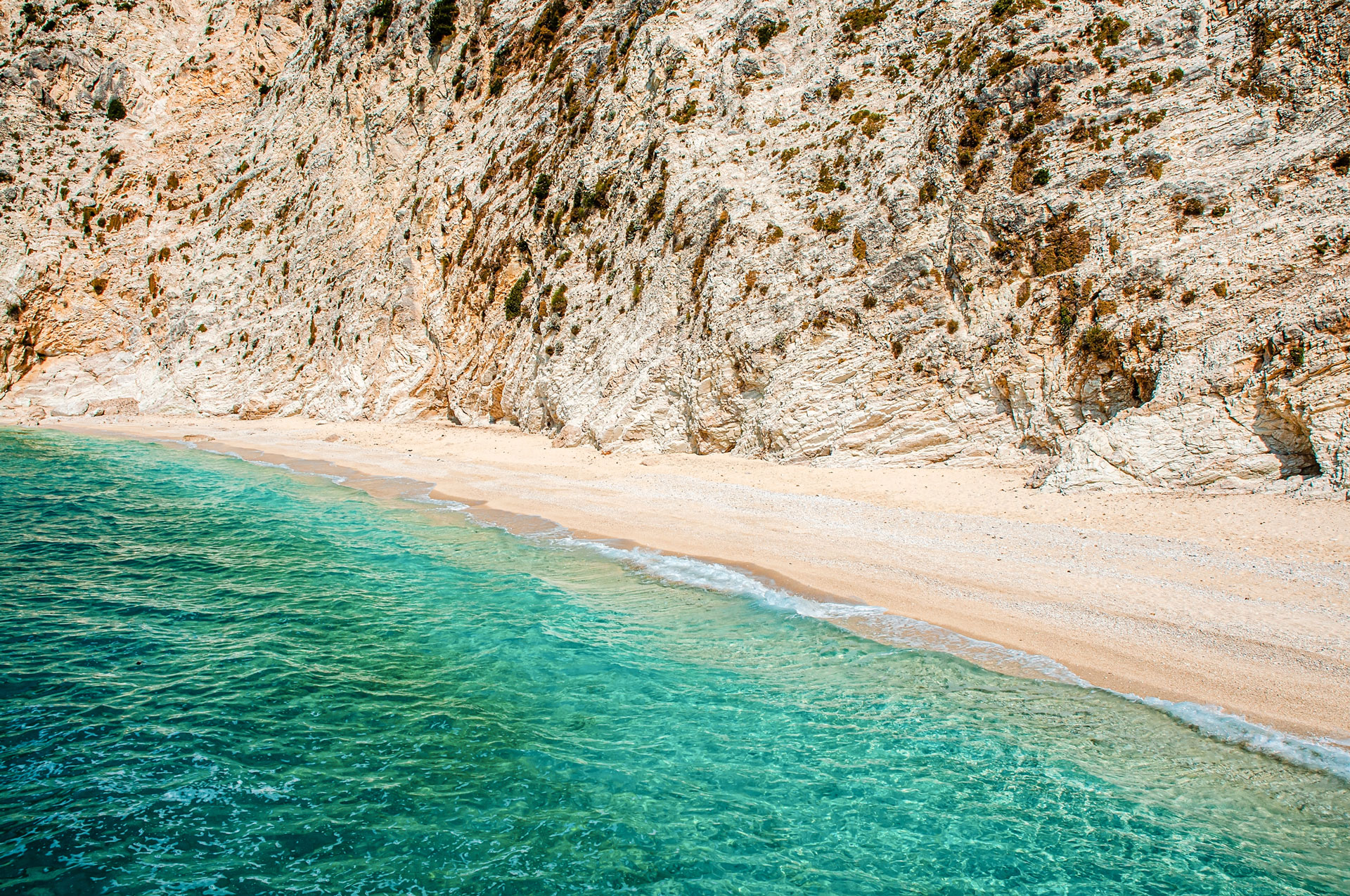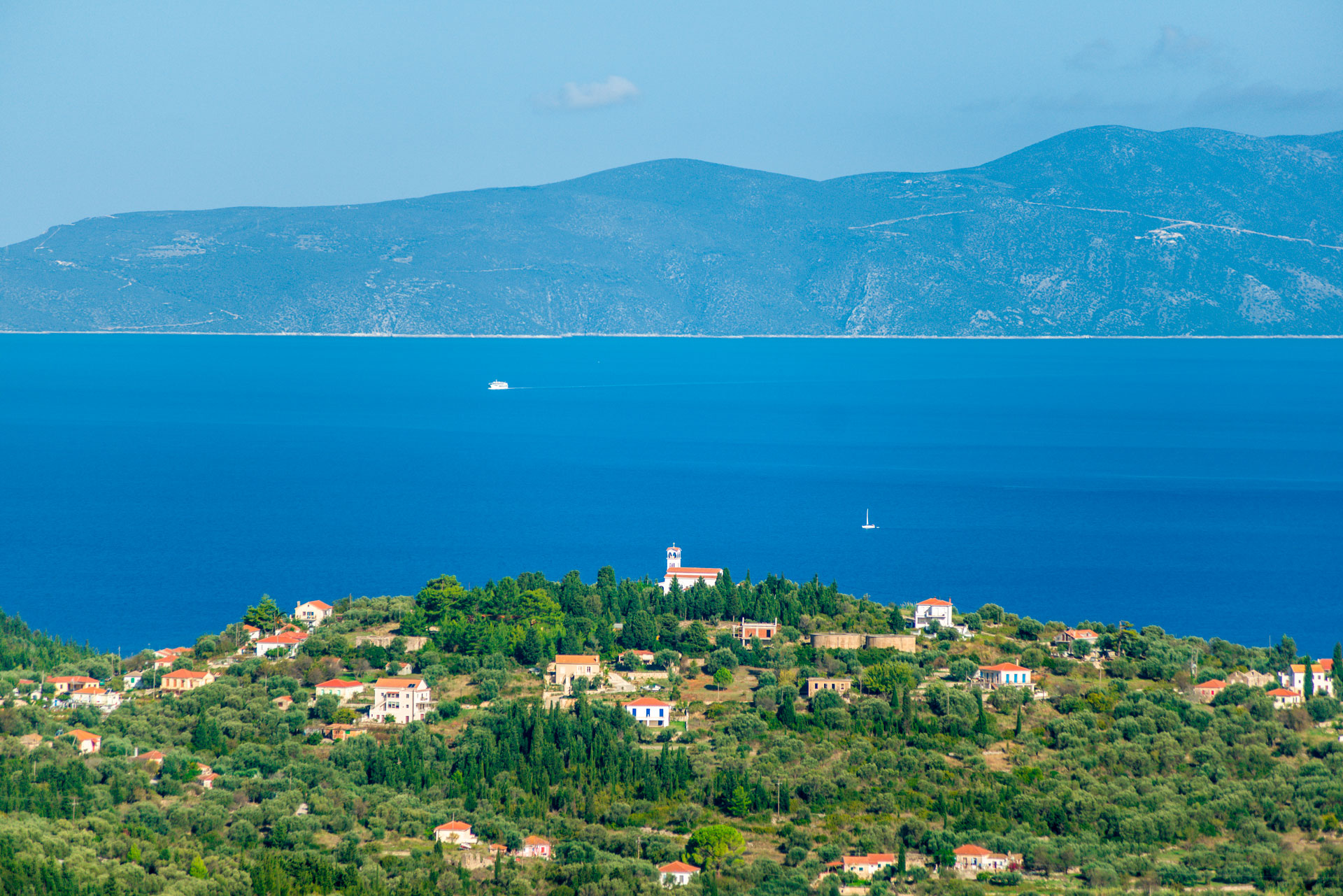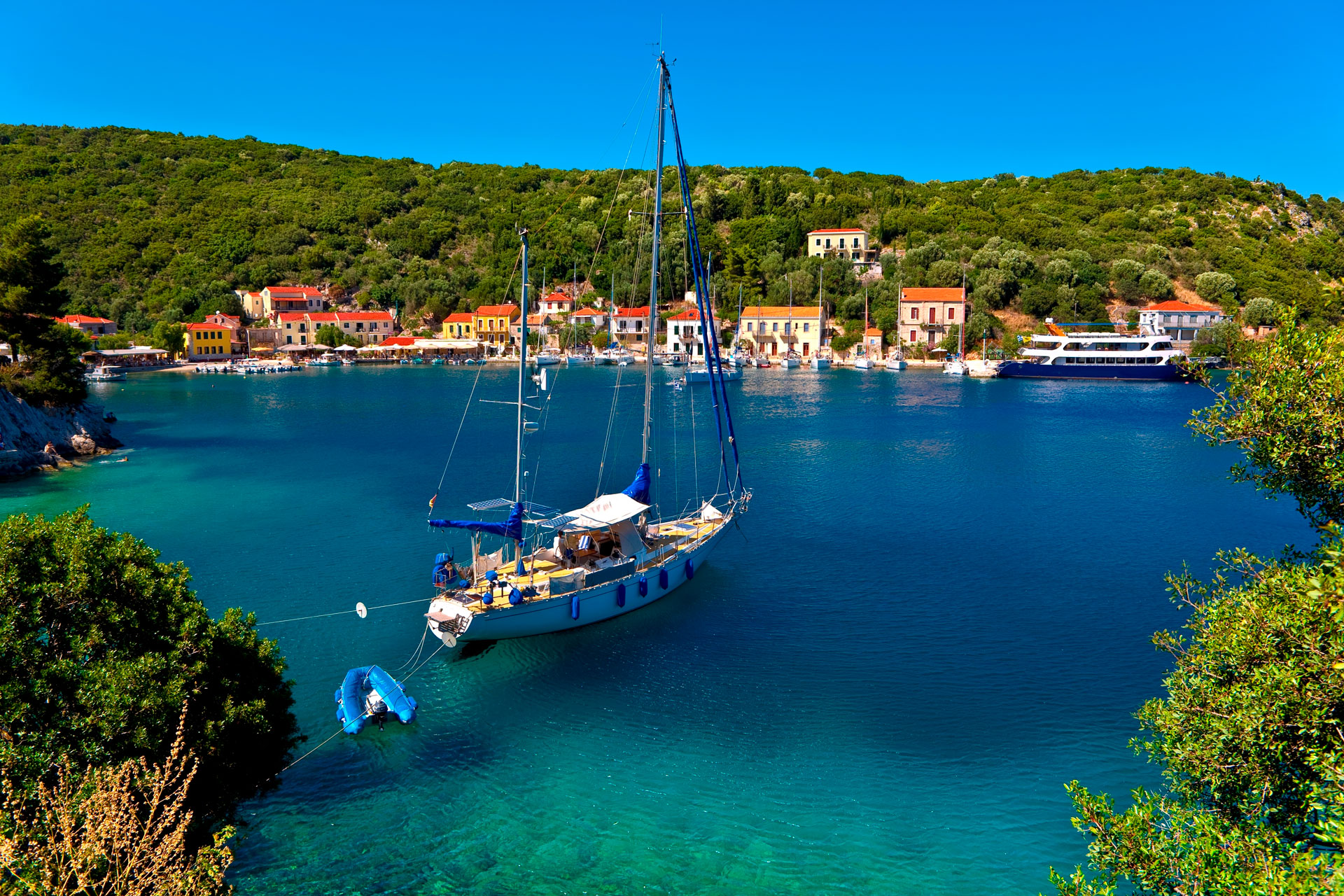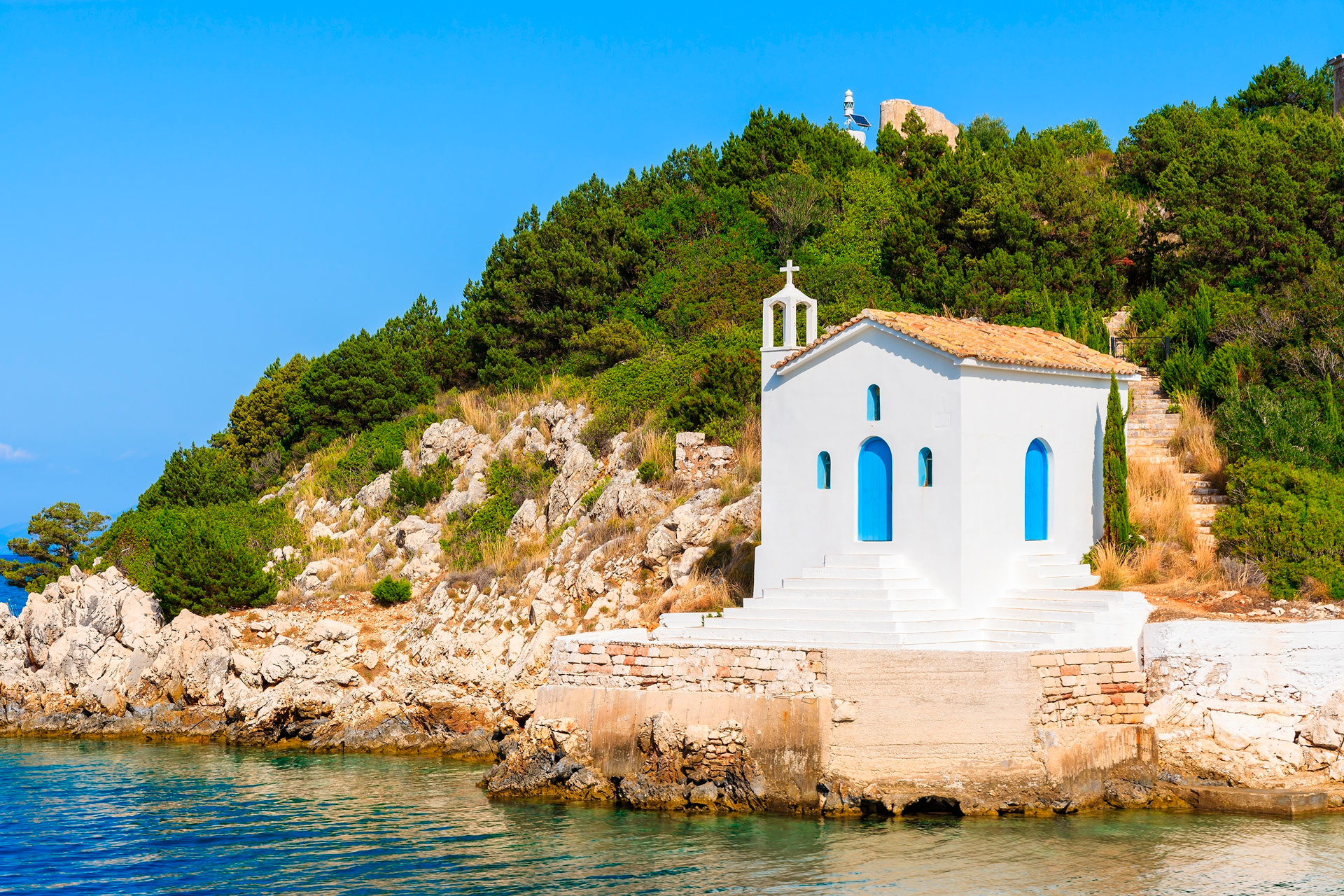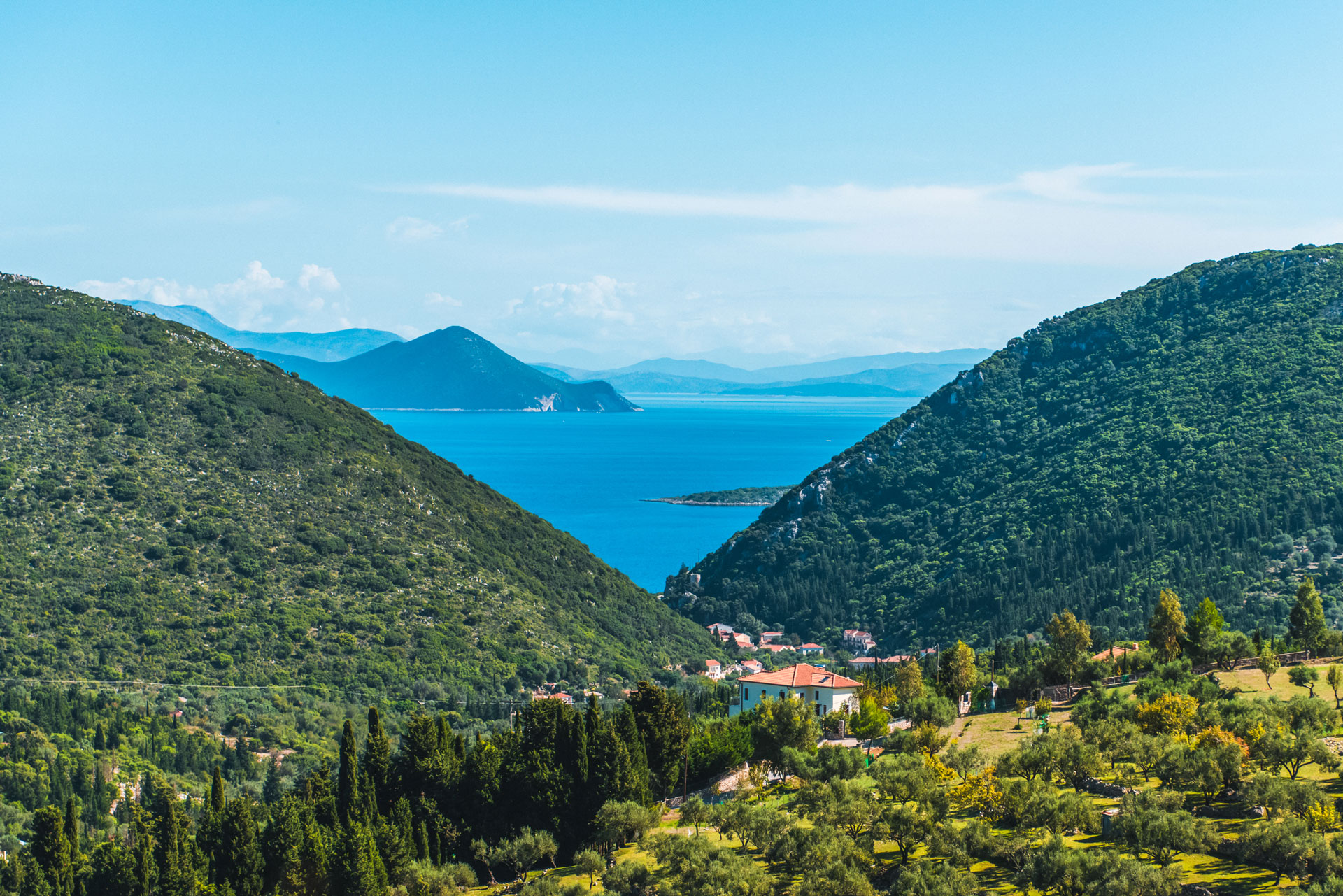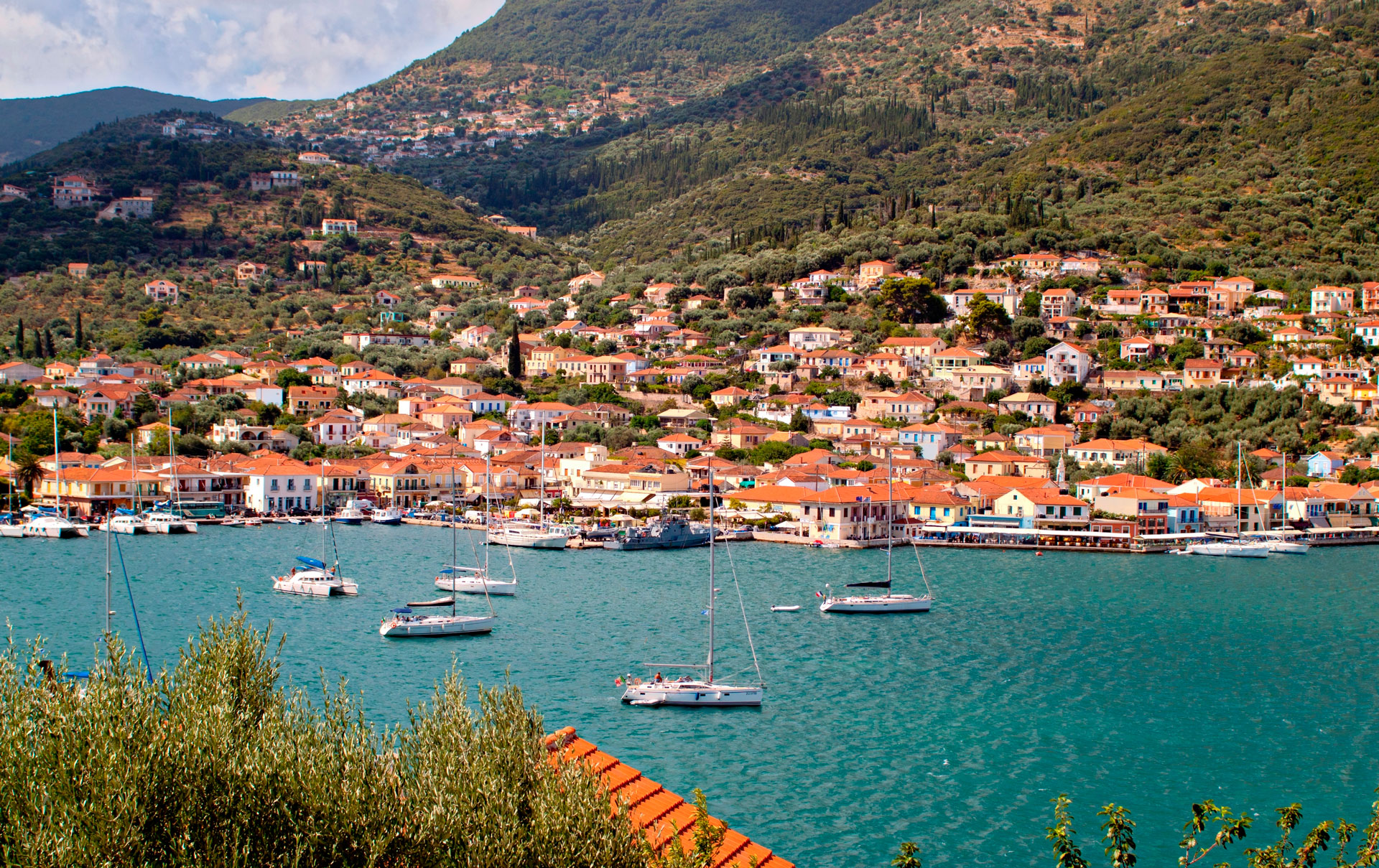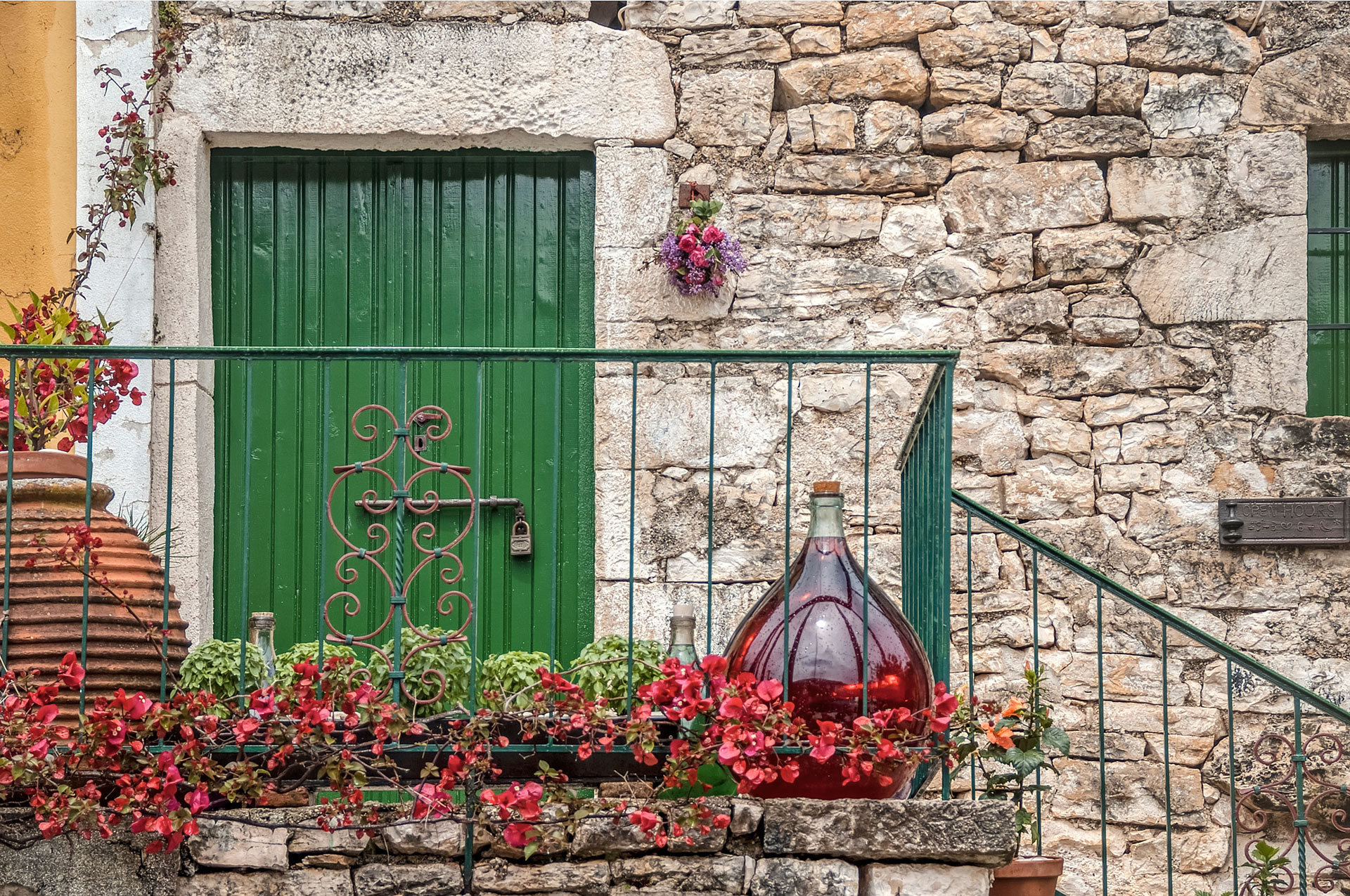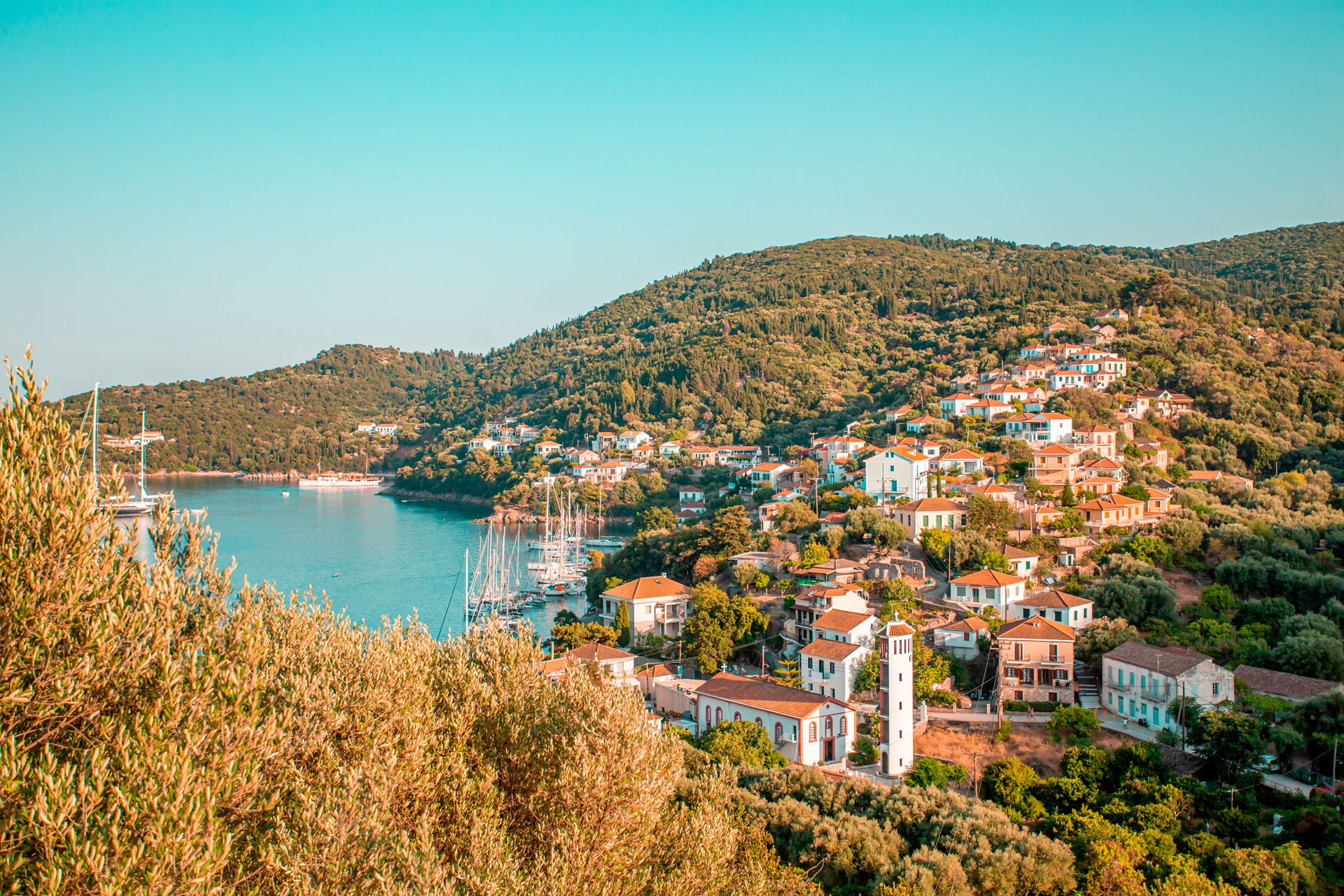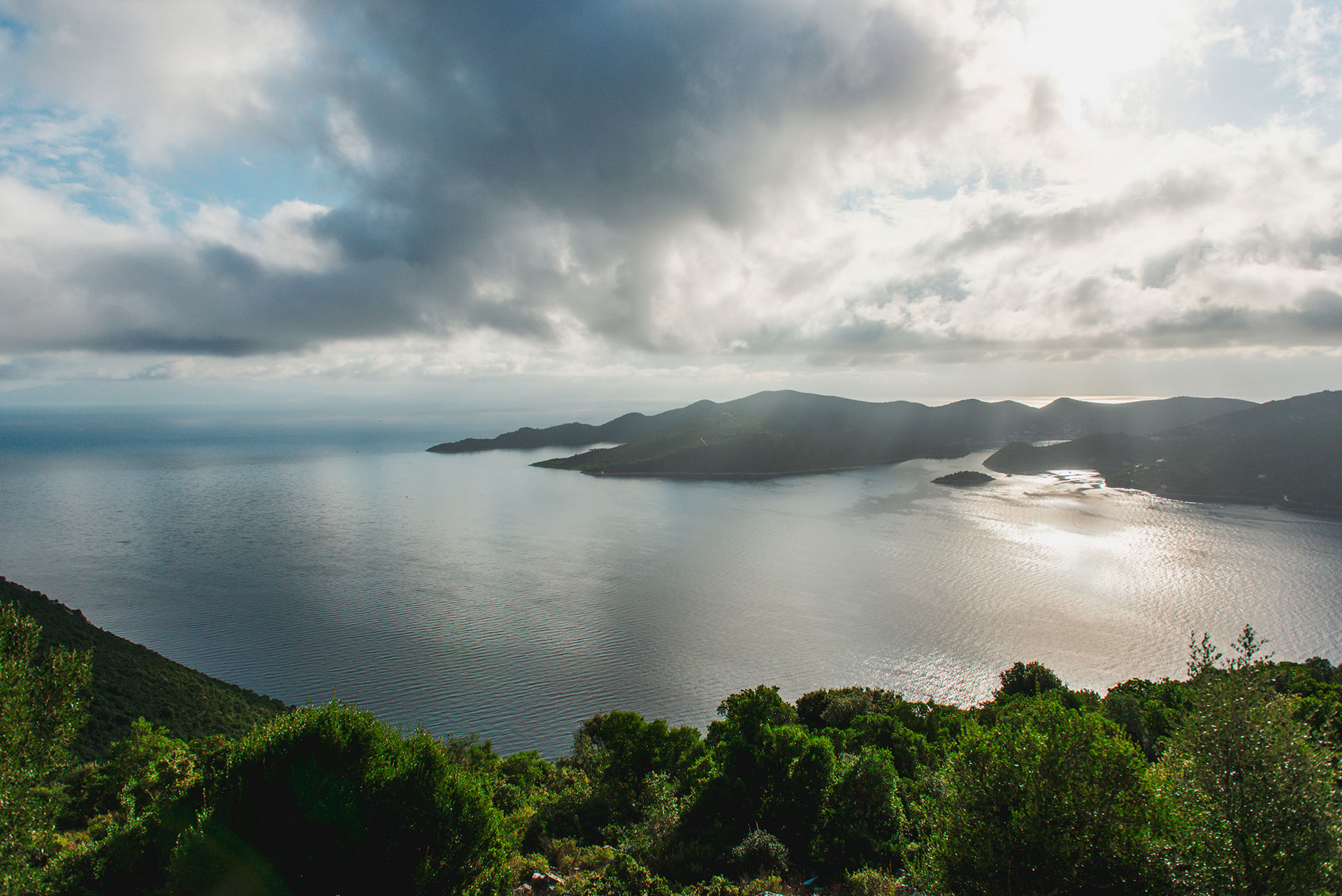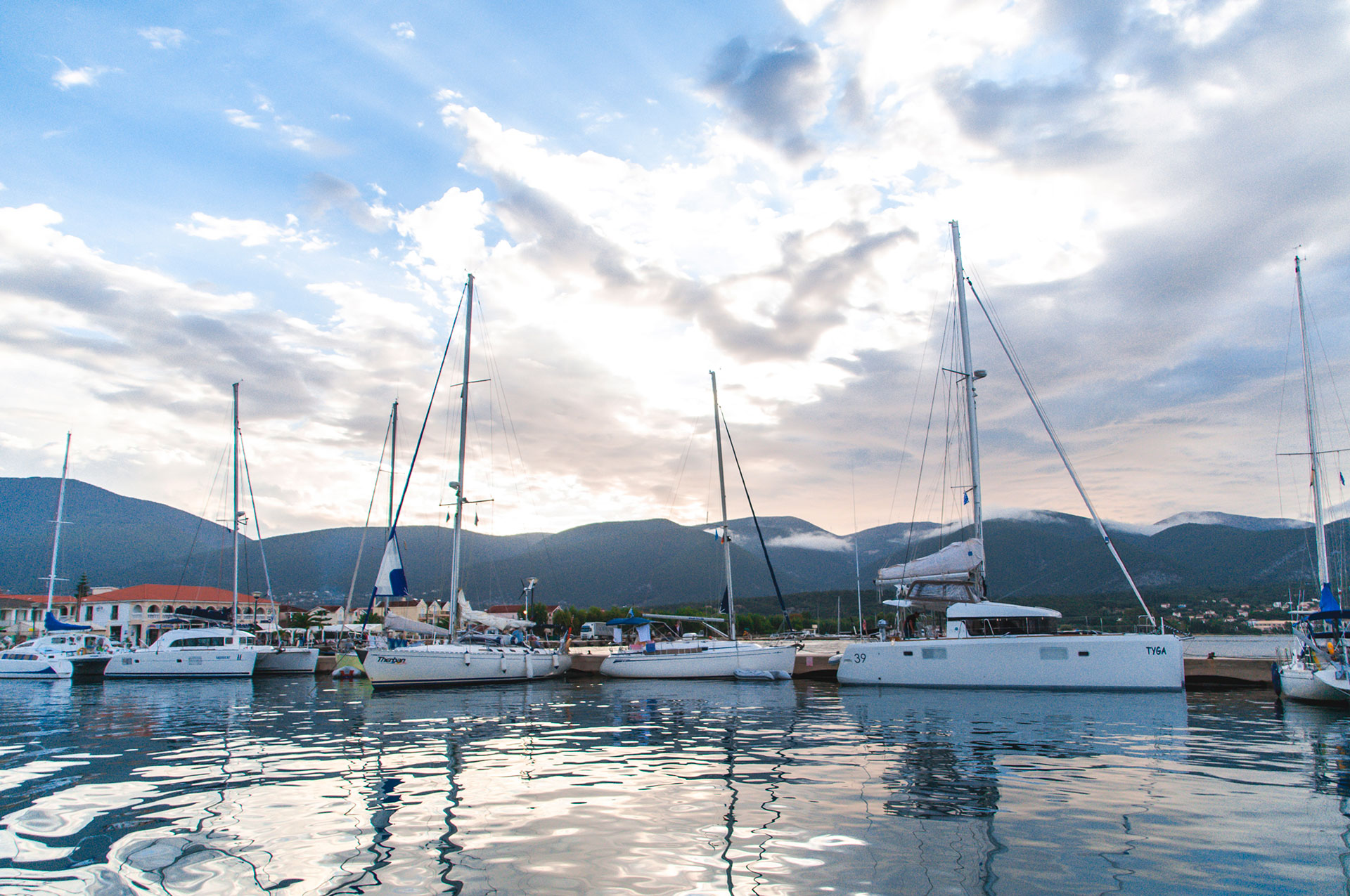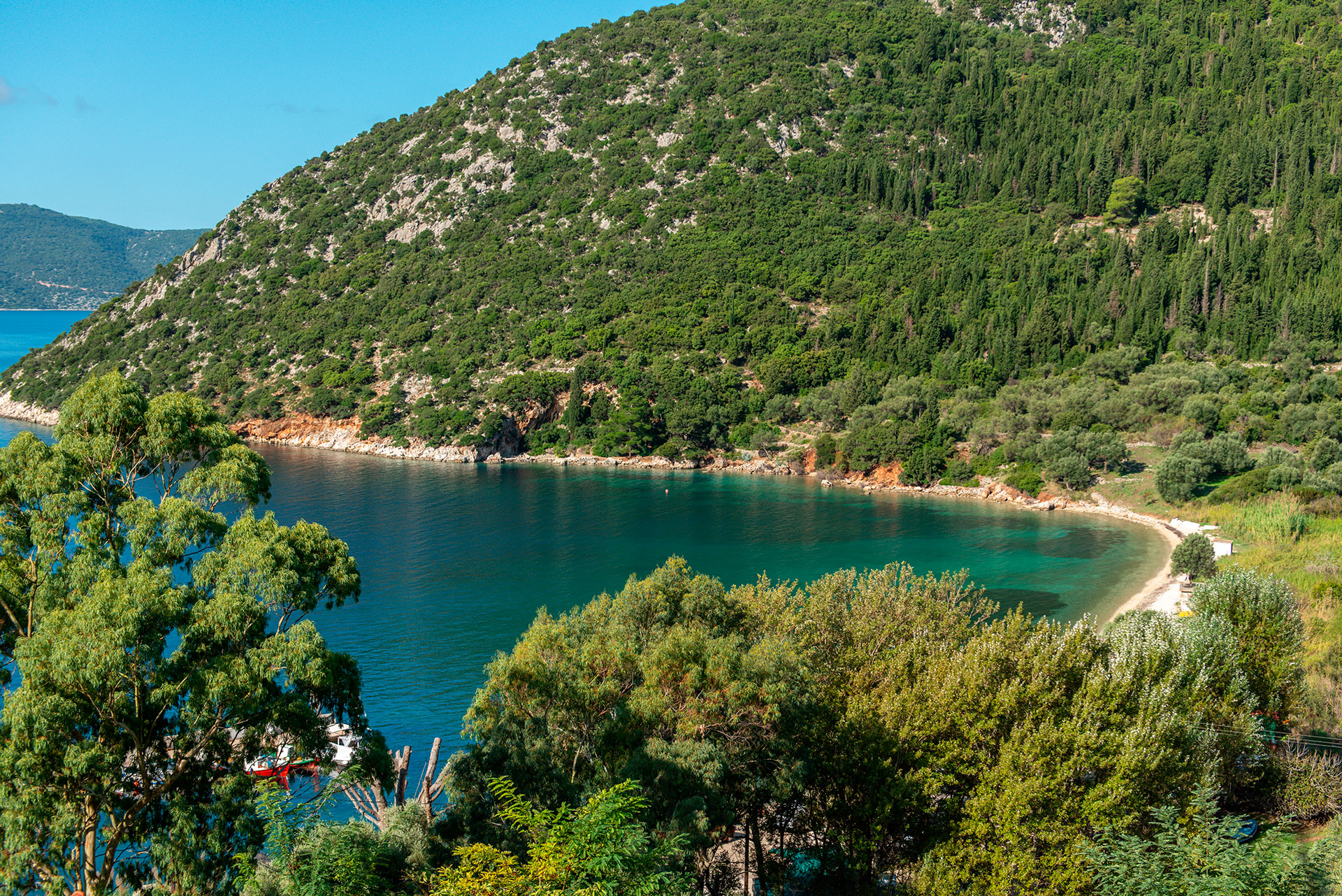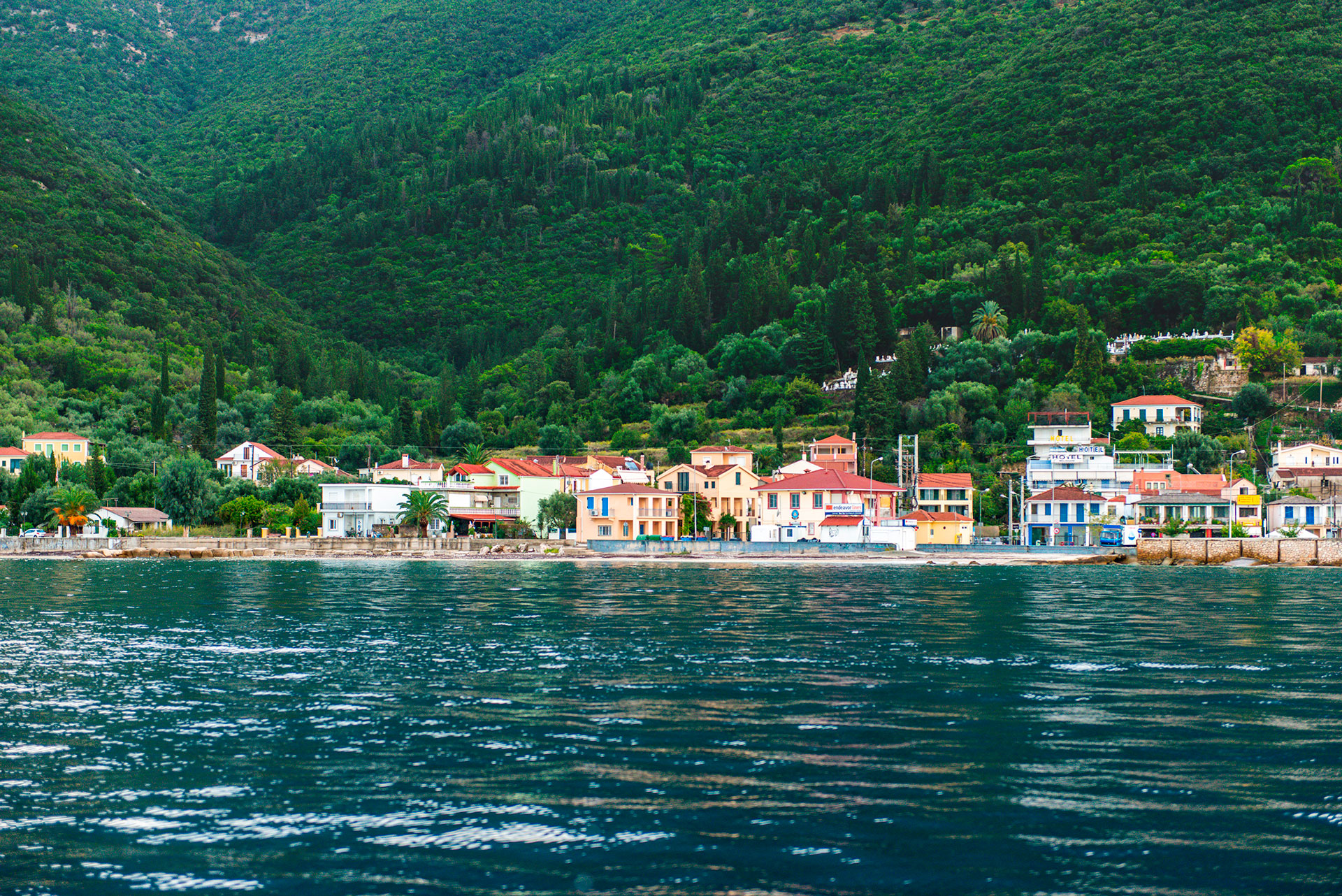Of course, the most comfortable way to reach Kioni – Ithaki’s most touristy village – is by car. Its architecture can be described as “mixed construction,” as Ithakans like to say – that is, a combination of houses that survived the earthquake and ones built afterwards. The maritime tradition of Ithaki has left many signs therel, such as the captains’ houses in various locations across the island.
Restaurants, tavernas and shops add a touristy vibe to the slow-paced atmosphere of this seaside village. Sailboats and yachts regularly fill the little harbor and the surrounding coves. The nearest beach is Filiatro, which has its own snack bar and a few tables in the shade under the trees. There are actually two beaches on the island that share the same name – this one in the north, and another in the south.
Something that seems a bit striking at first is that most of the rental accommodation is managed by British companies, and that the island is filled with English “For Sale” signs. Perhaps the Brits were the first to realize Ithaki’s tourism potential and value. There are villas available to rent at a cost of several thousand euros per week, yet at the same time there are also small, secluded beaches where you might find people free camping.
The feeling that Kioni leaves you with is truly wonderful. The same goes for Frikes, a small harbor with lots of fishing vessels, which is located a bit further up. Platreithias and nearby Stavros, the only village left standing after the earthquake, are both well worth a stop.
It is just outside the latter village that the trail begins for the School of Homer, an important archaeological site. There, among other sights, you will see the ruins of a Hellenistic tower, on top of which the little church of Aghios Athanasios was erected. The trail retains an almost archetypal charm, as does the archaeological site itself, unguarded though the latter is in need of signage.
Above all, the island has managed to preserve its romance, the kind described by the poet Cavafy in his famous lines:
“Keep Ithaka always in your mind.
Arriving there is what you’re destined for.
But don’t hurry the journey at all.
Better if it lasts for years,
so you’re old by the time you reach the island,
wealthy with all you’ve gained on the way,
not expecting Ithaka to make you rich.
Ithaka gave you the marvelous journey.
Without her you wouldn’t have set out.
She has nothing left to give you now.
And if you find her poor, Ithaka won’t have fooled you.
Wise as you will have become, so full of experience,
you’ll have understood by then what these Ithakas mean.”
—From “Ithaka” by C. P. Cavafy
